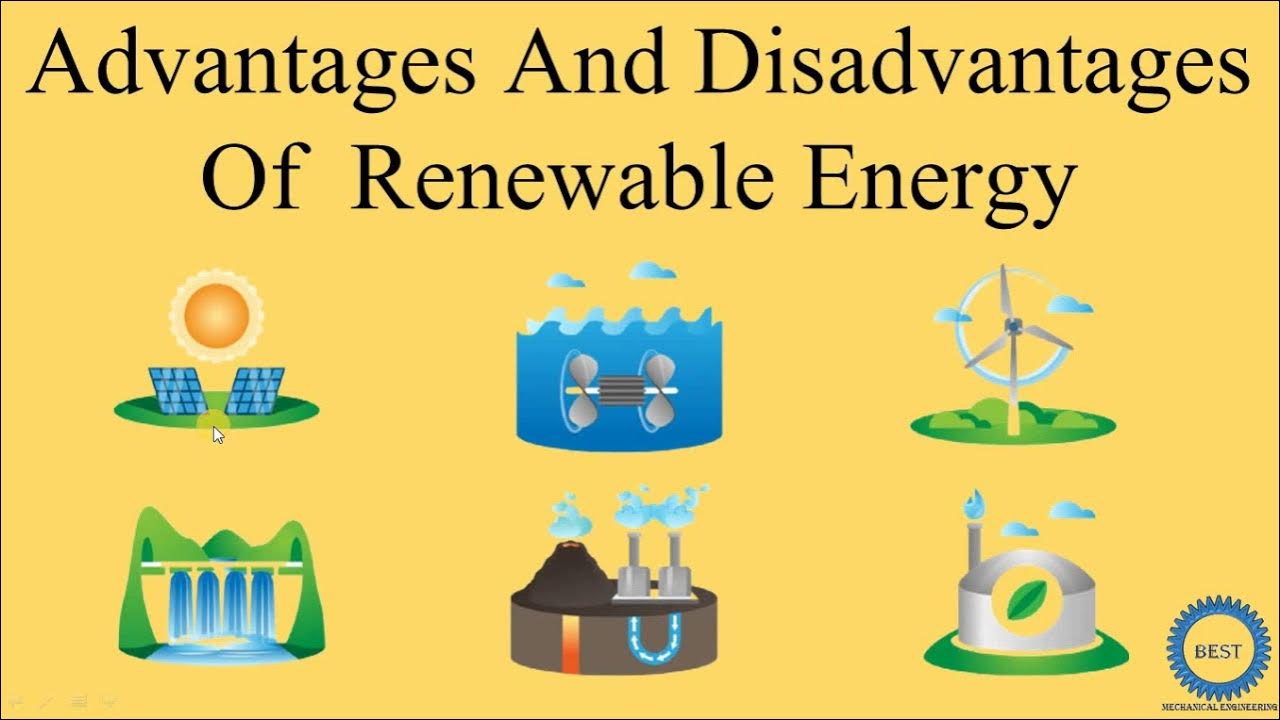Advantages of Renewable Energy
Renewable energy has become an increasingly popular topic in recent years, and for good reason. As the world faces the challenges of climate change and dwindling fossil fuel reserves, the advantages of renewable energy are becoming more evident. In this article, we will explore the numerous benefits that renewable energy sources offer and why they are crucial for a sustainable future.
Environmental Benefits
Renewable energy sources, such as solar, wind, hydro, and geothermal power, have a significantly lower environmental impact compared to traditional fossil fuels. By harnessing these clean sources of energy, we can reduce greenhouse gas emissions, air pollution, and water contamination. This helps mitigate climate change and improves the overall quality of our environment.
Energy Security
One of the key advantages of renewable energy is its potential to enhance energy security. Unlike fossil fuels, which are finite resources and subject to price volatility and geopolitical tensions, renewable energy sources are abundant and widely available. By diversifying our energy mix and relying more on renewables, we can reduce our dependence on foreign oil and create a more stable and secure energy supply.
Economic Benefits
The renewable energy sector has experienced significant growth in recent years, leading to job creation and economic development. Investing in renewable energy technologies not only stimulates local economies but also reduces our reliance on imported energy sources. Moreover, renewable energy systems have lower operating costs and can provide long-term savings for both businesses and households.
Public Health
The transition to renewable energy can have a positive impact on public health. Traditional energy sources, such as coal and oil, contribute to air and water pollution, leading to respiratory diseases, cardiovascular problems, and other health issues. By shifting towards cleaner energy alternatives, we can improve air quality, reduce pollution-related health risks, and enhance the overall well-being of communities.
Technological Advancements
The development and deployment of renewable energy technologies drive innovation and technological advancements. As more resources are invested in research and development, we can expect further improvements in the efficiency, storage capabilities, and cost-effectiveness of renewable energy systems. This opens up new opportunities for sustainable growth and ensures a brighter future for generations to come.

In conclusion, the advantages of renewable energy are vast and undeniable. From environmental benefits to energy security, economic growth, public health improvements, and technological advancements, transitioning to renewable energy sources is crucial for a sustainable and resilient future. By embracing renewable energy, we can mitigate climate change, reduce pollution, create jobs, and foster a cleaner and healthier planet for ourselves and future generations.
Frequently Asked Questions about the Advantages of Renewable Energy
1. What is renewable energy?
Renewable energy is energy that is derived from natural resources that can be replenished, such as sunlight, wind, rain, tides, and geothermal heat.
2. What are the main advantages of renewable energy?
The main advantages of renewable energy include reduced greenhouse gas emissions, energy independence, job creation, and a more sustainable future.
3. How does renewable energy help reduce greenhouse gas emissions?
Renewable energy sources produce little to no greenhouse gas emissions during operation, unlike fossil fuels which release large amounts of carbon dioxide and other pollutants.
4. Can renewable energy sources provide a stable and reliable power supply?
Yes, renewable energy technologies have advanced significantly, and with proper planning and integration, they can provide a stable and reliable power supply.
5. Does renewable energy help in reducing air pollution?
Yes, renewable energy sources produce clean energy, which helps in reducing air pollution and improving air quality, leading to better public health.
6. How does renewable energy contribute to energy independence?
By utilizing renewable energy sources that are abundant and domestically available, countries can reduce their dependence on imported fossil fuels and achieve energy independence.
7. Can renewable energy help create jobs?
Yes, the renewable energy sector has the potential to create numerous job opportunities, from manufacturing and installation to maintenance and research.
8. Are renewable energy sources sustainable in the long run?
Yes, renewable energy sources are considered sustainable as they are naturally replenished and do not deplete finite resources like fossil fuels.
9. How does renewable energy help in reducing the effects of climate change?
Renewable energy plays a crucial role in mitigating climate change by reducing greenhouse gas emissions, which are the main contributors to global warming.
10. Are there any financial benefits to using renewable energy?
Yes, using renewable energy can lead to financial savings in the long run, as it reduces reliance on costly and volatile fossil fuels and can provide a stable energy price over time.
11. Can renewable energy be used in transportation?
Yes, renewable energy can be used in transportation through the use of electric vehicles powered by renewable electricity or by producing biofuels from organic matter.
12. Are there any health benefits associated with renewable energy?
Yes, renewable energy sources produce clean energy, which improves air quality and reduces respiratory and cardiovascular diseases caused by air pollution.
13. Can renewable energy sources be used in remote areas?
Yes, renewable energy sources can be particularly beneficial in remote areas where access to traditional energy sources may be limited or non-existent.
14. How does renewable energy promote energy security?
Renewable energy diversifies the energy mix, reducing dependence on a single energy source and enhancing energy security by providing a decentralized and resilient energy system.
15. Are there any technological advancements in renewable energy?
Yes, there have been significant technological advancements in renewable energy, leading to improved efficiency, cost-effectiveness, and scalability of renewable energy systems.




